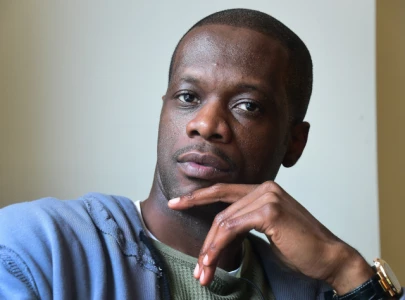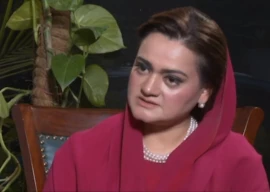
Teachers should be focussed solely on imparting education and not on duties outside the classrooms such as going door to door to enrol out-of-school children, said speakers at a dialogue here on Monday on the role of teachers in the provision of education for all.
“Literacy has moved beyond reading and writing. It now involves various and diverse skills,” said ITA research associate Saba Saeed, at the dialogue organised by Idara-i-Taleem-o-Aagahi (ITA), the Institute for Professional Learning (IPL) and Unesco here on Monday.

Saeed said with the meaning of literacy evolving, the role of teachers became all the more important. According to ITA, there are some 0.6 million teachers in the province, of whom 450,000 are registered with the Punjab Teachers Union.
Pakistan Private Schools Management Association President Adeeeb Jawdani challenged the government’s claim that the literacy rate stood at 58 per cent. He said education for all had been kept on the back foot by successive governments to prevent equal opportunities for all. He said that with teachers being sent to work on an enrolment drive, schools had been more or less abandoned.
PTU leader Allah Baksh Qaiser also expressed reservations about the use of teachers in the Punjab government’s enrolment drive. “It is not the responsibility of the teachers to knock on doors and enrol out-of-school children,” he said. “Their responsibility is in the classroom.”
He said that the government should establish dedicated institutions which could work on such campaigns without forcing the teachers to neglect their primary duties. “To top it off, we are slapped with penalties when the exam results are poor,” he added. Qaiser said that children should not be unduly burdened beyond their intellectual capacities. Instead of experimenting with policies such as the introduction of English as the medium of instruction in all public schools, the government should formulate practical policies, he said.

Punjab Association of Subject Specialists President Rana Ata said there was a dearth of teachers in the public sector. He said while the government had announced that it would hire 30,000 teachers this year, the recruiting process had not started and the academic year was already underway.
He added that the shortage of trained teachers was directly affecting learning outcomes. Ideally, he said, there should be one teacher for every 40 students at the primary level, 35 at the middle level, and 25 at the secondary level.
Dr Shahid Siddiqui, the head of the Centre for Humanities and Social Sciences at the Lahore School of Economics, questioned whether the education imparted at government schools was relevant in the modern world. At the same time, he said, teachers also needed to be made more competent.
He said school drop-outs were a great challenge to the system. The higher the drop-out rate, the lower the literacy levels, he said. He stressed the need for better management of resources and timely release of funds.
Unesco Director Dr Kozue Kay Nagata said the Punjab was the only province in Pakistan with a budgeted literacy department. While the province as a whole was showing improvement, southern Punjab needed more attention, particularly in addressing a gender imbalance in enrolment. According to a survey, she said, the most common reason for boys not going to school was that they did not want to go. But for girls, the most common reason was the reluctance of their parents to send them to school.

Qaiser Rasheed, the deputy finance secretary at the Schools Education Department, said the greatest challenge in the government’s enrolment drive was at the primary level. He said that the Punjab government spent up to Rs9,000 per student per year from grades 1 to 8. At the secondary and the higher secondary levels, this expenditure rose to almost Rs59,000 per student per year.
He said that the student teacher ratio currently stood at one teacher for 42 children at the primary level, 32 at the elementary level, 27 at the secondary level and 16 at the higher secondary level. The government, he said, had laid out a four-year plan for the recruitment of teachers.
Published in The Express Tribune, September 10th, 2013.










1732012115-0/Untitled-design-(14)1732012115-0-270x192.webp)






COMMENTS
Comments are moderated and generally will be posted if they are on-topic and not abusive.
For more information, please see our Comments FAQ